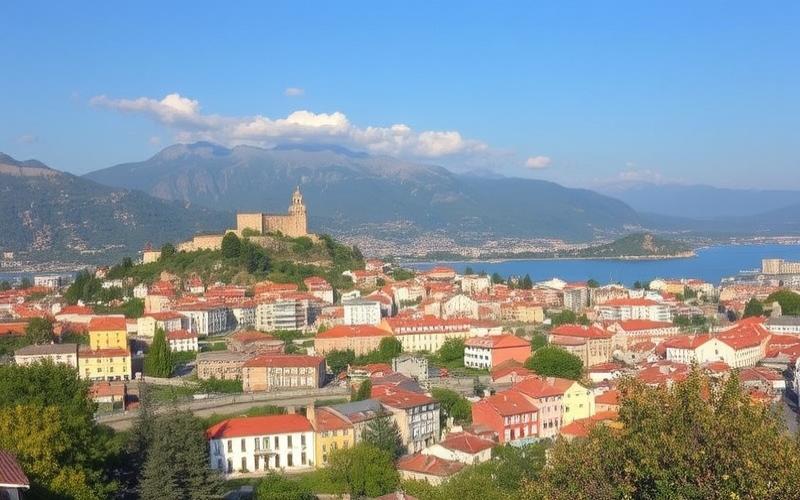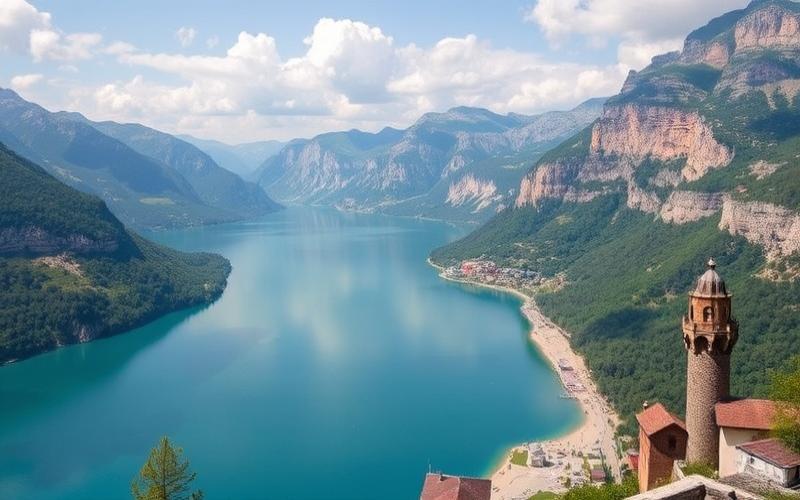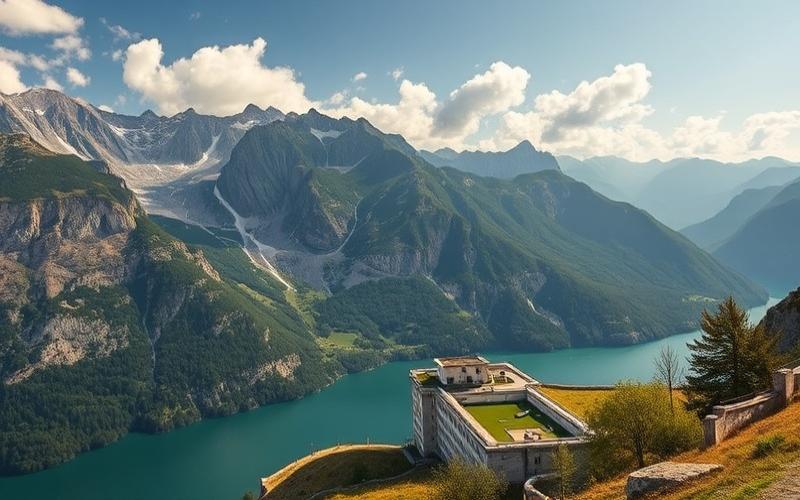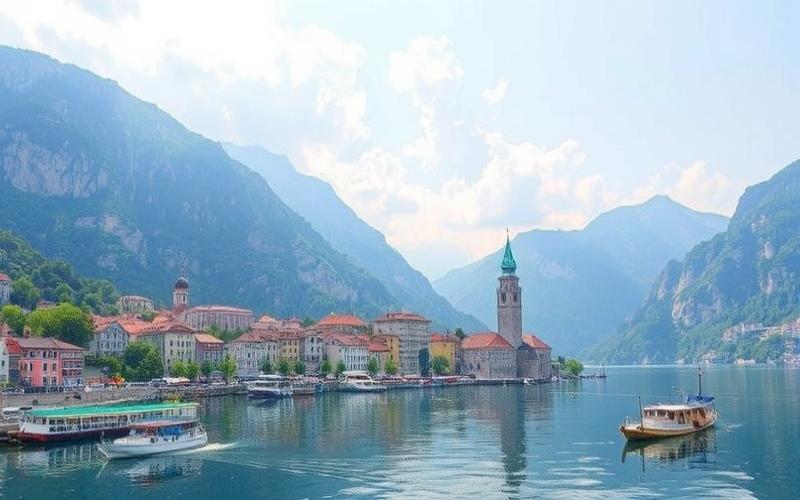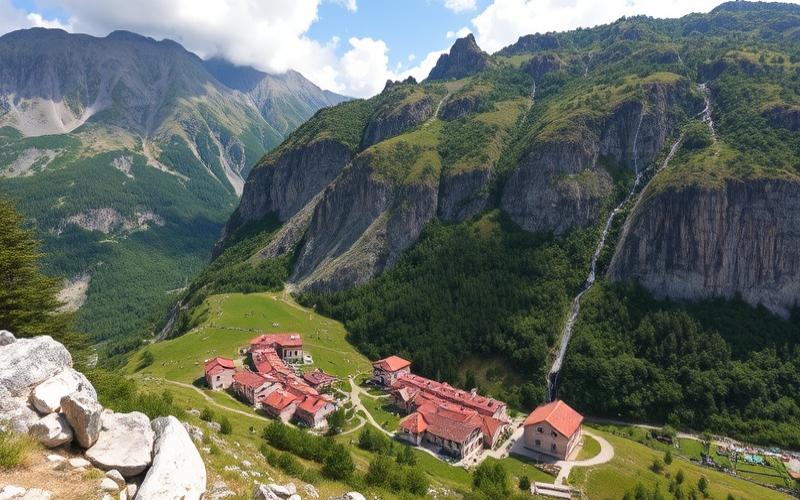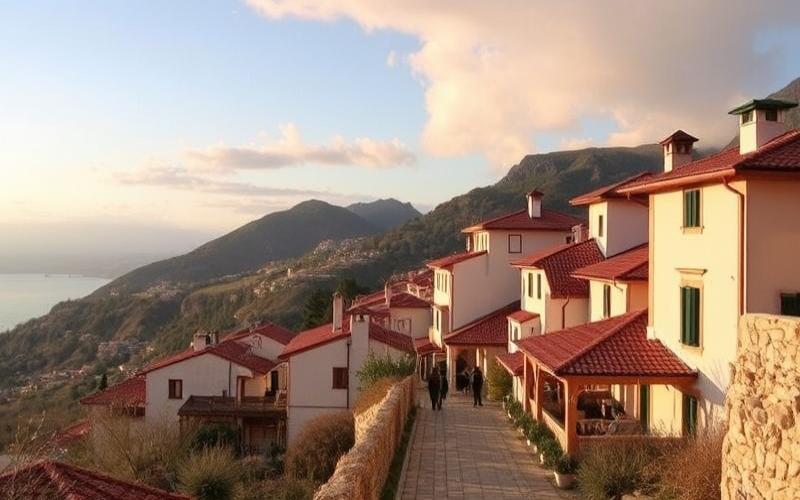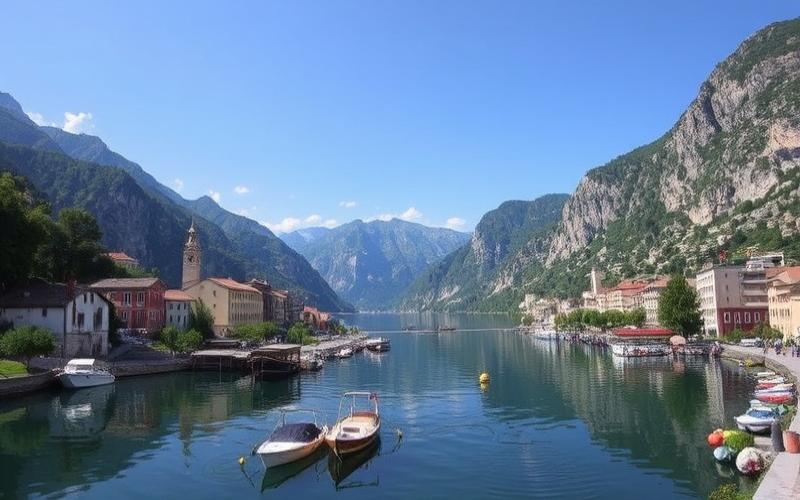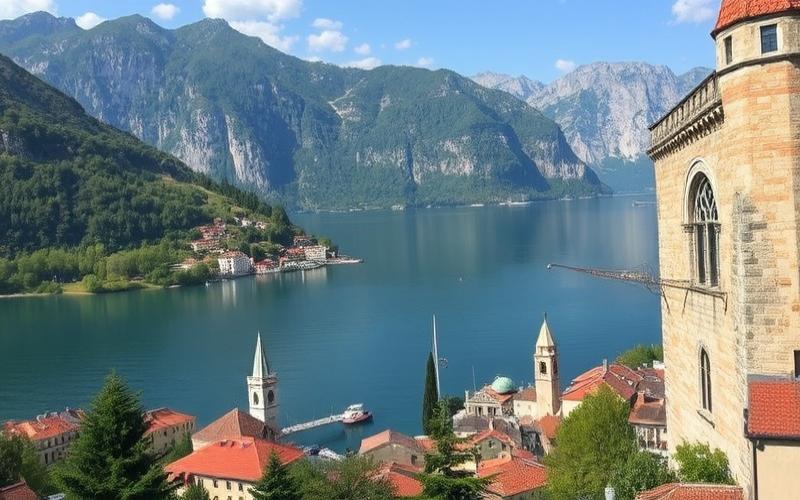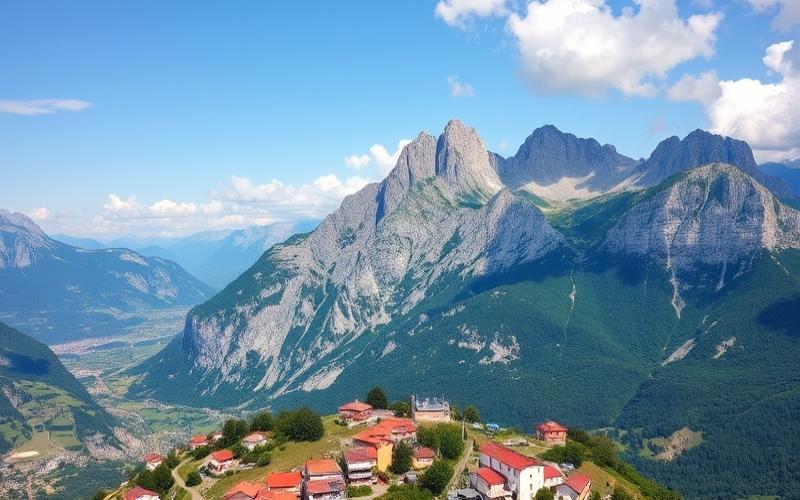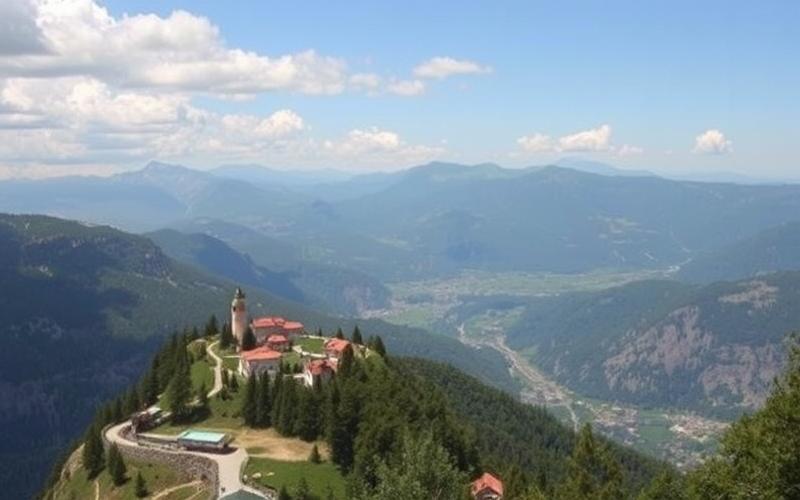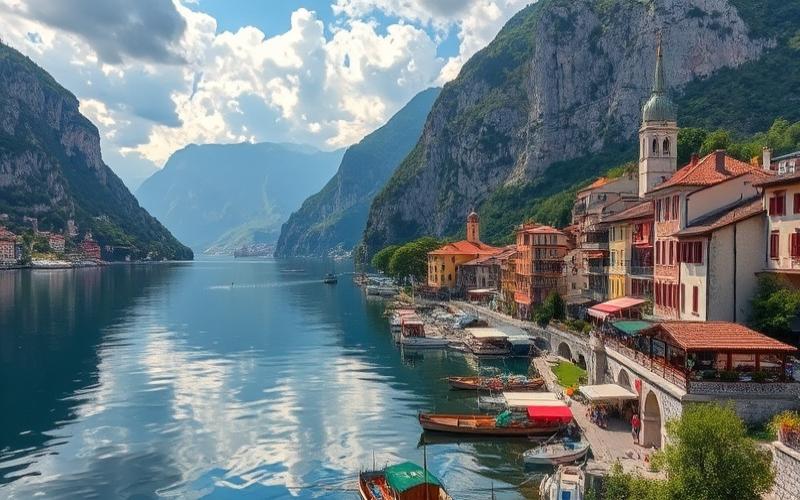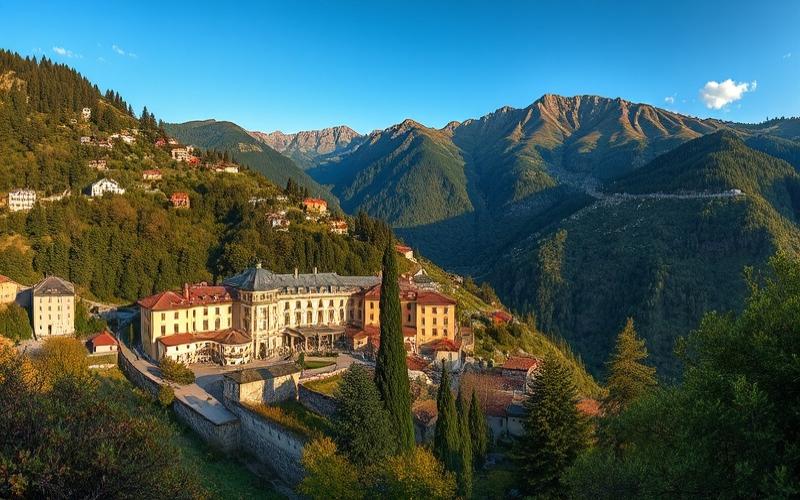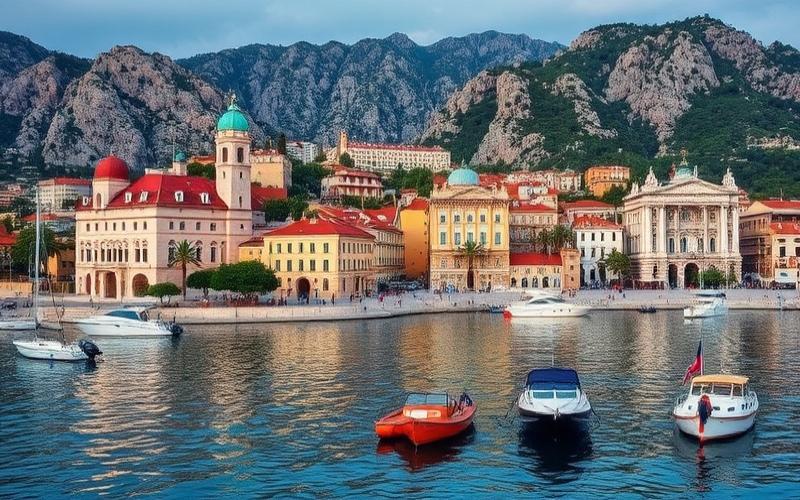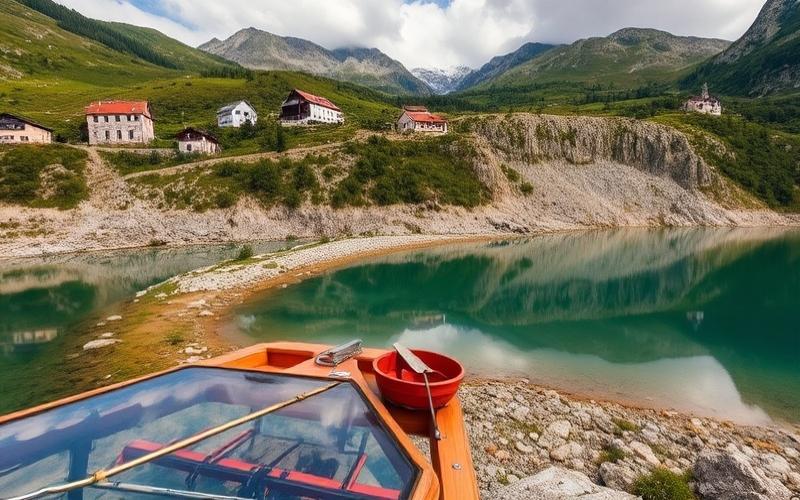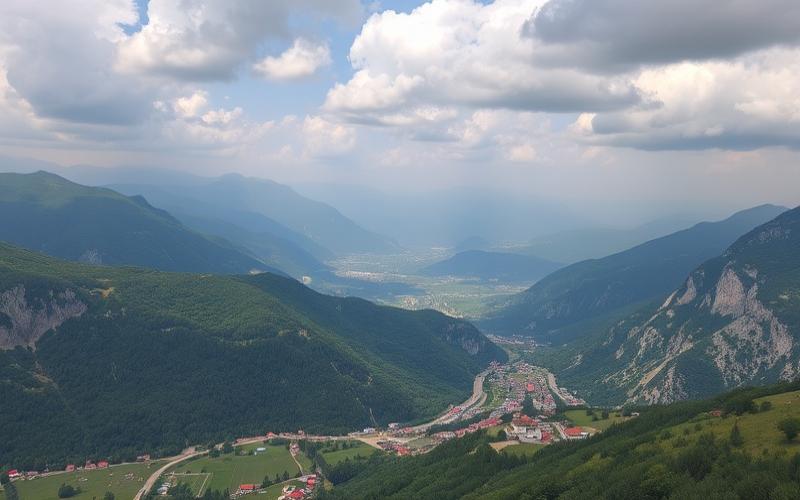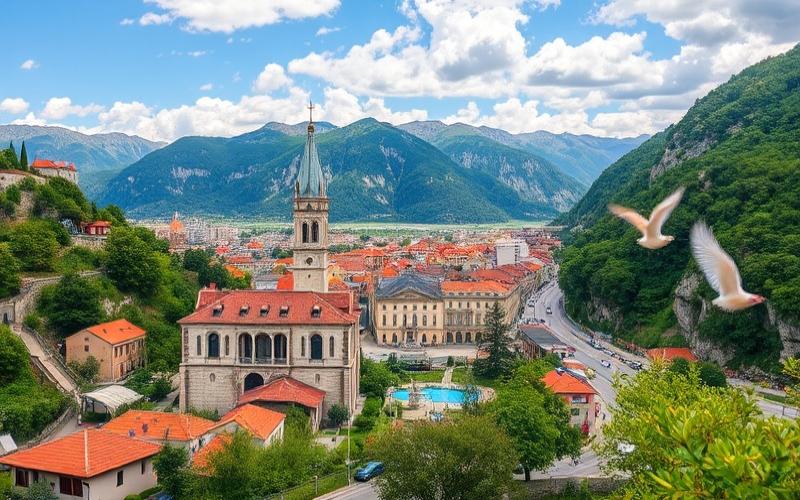
 Published on and written by Cyril Jarnias
Published on and written by Cyril Jarnias
Montenegro, with its picturesque landscapes and rapidly expanding real estate market, is attracting an increasing number of foreign investors. However, obtaining real estate financing in this Balkan country can prove complex for non-residents. In this article, we will explore available financing options, required conditions, and necessary documents to realize your real estate project in Montenegro.
Can Foreigners Really Get a Mortgage in Montenegro?
The short answer is yes, but with restrictions. Unlike many European countries, Montenegro doesn’t have a well-developed mortgage market for foreigners. Local banks are generally reluctant to grant loans to non-residents due to perceived risks and difficulties in assessing foreign borrowers’ creditworthiness.
However, there are some options for determined investors:
- Financing through international banks: Some foreign banks, particularly those with subsidiaries in Montenegro, may be more inclined to grant loans to non-residents.
- Loans secured by foreign assets: If you have assets in your home country, you could use them as collateral to obtain a loan in Montenegro.
- Seller financing: In some cases, sellers may agree to finance part of the purchase, although this option is less common.
It’s important to note that even when financing is available, terms are often less favorable than for Montenegrin residents. Interest rates may be higher and repayment periods shorter.
Good to Know:
While real estate financing for foreigners is possible in Montenegro, it’s generally more difficult to obtain and may involve less advantageous terms. It’s advisable to explore all options, including financing in your home country, before committing.
Solid File: Essential Documents for Your Loan Application
To maximize your chances of obtaining real estate financing in Montenegro, you’ll need to prepare a strong application file. Here are the generally required documents:
- Valid passport or ID
- Proof of income (pay stubs, tax returns)
- Bank statements from the last 6 to 12 months
- Employment certificate or documents proving professional activity
- Preliminary property purchase agreement
- Property valuation by a certified expert in Montenegro
- Proof of equity (typically 30 to 40% of purchase price)
- Credit history from your home country (if available)
Official translation of these documents into Montenegrin or English is often required. It’s recommended to use a certified translator to ensure translation compliance.
Additionally, some banks may require additional documents, such as a business plan if the purchase is related to a commercial investment, or proof of assets for wealthy investors.
Meticulous preparation of your file is crucial. Not only does it increase your approval chances, but it can also speed up the evaluation process of your application.
Good to Know:
Preparing a complete and well-organized file is essential for obtaining real estate financing in Montenegro. Allow sufficient time to gather all necessary documents and have them translated by a recognized professional.
Keys to Success: Essential Conditions for Securing Your Loan
Obtaining real estate financing in Montenegro as a foreigner requires meeting several strict conditions. Here are the main criteria that banks and financial institutions will examine:
1. Financial Stability and Income
Lenders look for borrowers with stable financial situations and regular income. Typically, they require:
- A minimum net monthly income of 2,000 to 3,000 euros
- At least 2 years of professional experience in the same job or sector
- Sufficient income to cover loan payments without exceeding 30 to 40% of net income
2. Substantial Personal Contribution
Most banks in Montenegro require significant personal contributions from foreign borrowers. Be prepared to provide between 30% and 50% of the purchase price in equity. This high requirement aims to reduce bank risk and demonstrates your financial commitment to the project.
3. Excellent Credit History
Your credit history in your home country will be scrutinized. A spotless credit record will significantly increase your chances of obtaining financing. Late payments, defaults, or significant debts can jeopardize your application.
4. Additional Guarantees
To strengthen your application, you might need to provide additional guarantees, such as:
- Life insurance covering the loan amount
- Real estate or financial assets in your home country
- A guarantor with solid financial standing in Montenegro
5. Viable Real Estate Project
The property you wish to acquire should have stable or growing market value. Banks generally favor properties in popular tourist areas or major cities like Podgorica, Budva, or Kotor.
6. Legal Compliance
Ensure the property complies with Montenegrin legislation. This includes a clear title deed and valid construction permits for new builds.
Good to Know:
Conditions for obtaining a mortgage in Montenegro as a foreigner are strict. A high personal contribution, stable income, and excellent credit history are essential. Be prepared to provide additional guarantees to strengthen your application.
Winning Strategies to Maximize Your Approval Chances
Facing the challenges of real estate financing in Montenegro for foreigners, adopting a strategic approach is crucial. Here are some tips to increase your success chances:
1. Establish Local Presence
Opening a bank account in Montenegro and conducting regular transactions can help you build a relationship with a local bank. Some financial institutions might be more inclined to grant you a loan if you demonstrate long-term commitment to the country.
2. Consider a Montenegrin Business Structure
Creating a company in Montenegro and purchasing property through this entity can sometimes facilitate obtaining financing. This may also offer tax benefits but requires careful planning and appropriate legal advice.
3. Explore International Financing Options
Don’t limit yourself to Montenegrin banks. International financial institutions specializing in cross-border real estate loans might offer solutions better suited to your situation.
4. Consider Partial Financing
If you can’t obtain financing for the entire purchase, consider applying for a loan covering only part of it. Combining your equity with a smaller loan can increase your approval chances.
5. Work with an Experienced Local Broker
A real estate or financial broker familiar with the Montenegrin market can guide you toward the best financing options and help you navigate the complex loan process.
6. Prepare a Solid Business Plan
If your purchase is related to an investment (for example, rental property), a detailed business plan showing potential profitability can strengthen your application with lenders.
7. Be Ready to Negotiate
Loan terms can often be negotiated. Be prepared to discuss interest rates, loan duration, and required guarantees. A flexible approach can help you find a mutually beneficial agreement with the lender.
Good to Know:
A strategic and well-prepared approach is essential for obtaining real estate financing in Montenegro as a foreigner. Establishing local presence, exploring various financing options, and working with experienced professionals can significantly improve your success chances.
Innovative Alternatives to Traditional Bank Financing
Facing the challenges of traditional bank financing, foreign investors in Montenegro can explore innovative alternatives:
1. Real Estate Crowdfunding
Real estate crowdfunding platforms are beginning to emerge, allowing investors to collectively finance real estate projects in Montenegro. Although this market is still nascent, it offers interesting prospects for small and medium investors.
2. Peer-to-Peer Lending
Peer-to-peer lending platforms can connect borrowers with private investors willing to finance real estate projects. This option may offer more flexibility in loan terms.
3. Seller Financing
Some sellers, particularly for luxury properties or development projects, may be willing to offer partial financing. This could take the form of installment payments or a direct loan from the seller.
4. Investment Partnerships
Partnering with local investors or other foreign investors can allow you to pool resources and spread risks, thus facilitating access to financing.
5. Real Estate Leasing
Although less common for residential properties, leasing can be an option for commercial properties, offering an alternative to traditional financing.
6. Real Estate Investment Funds
Some investment funds specializing in Montenegrin real estate may offer financing or co-investment options for specific projects.
7. Real Estate Tokenization
Emerging but promising, tokenization allows splitting property ownership into digital tokens, facilitating investment and potentially financing.
Good to Know:
Alternatives to traditional bank financing offer new opportunities for foreign investors in Montenegro. These options may require thorough due diligence and specialized legal advice, but they can open doors where traditional methods fail.
Investing in Montenegrin real estate as a foreigner carries specific risks. Here are the main pitfalls to avoid and essential precautions to take:
1. Don’t Neglect Due Diligence
Before committing to a purchase or financing, conduct thorough verification of the property, seller, and all parties involved in the transaction. This includes checking the title deed, building permits, and property history.
2. Beware of Overly Attractive Financing Offers
If a loan offer seems too good to be true, it probably is. Be wary of unregulated lenders or financing offers with unusually favorable terms.
3. Watch Out for Exchange Rate Fluctuations
If you borrow in a currency different from your primary income currency, be aware of exchange rate fluctuation risks. Consider hedging strategies to protect against these risks.
4. Don’t Underestimate Hidden Costs
Beyond the purchase price and loan interest, budget for funds to cover notary fees, taxes, valuation fees, and other costs associated with purchasing and financing real estate in Montenegro.
5. Be Cautious with Cross-Collateralization
If you’re asked to provide guarantees on assets in your home country, make sure you fully understand the legal and financial implications of such arrangements.
6. Don’t Neglect Tax Aspects
Consult international tax experts to understand the tax implications of your real estate investment in Montenegro, both in the country and abroad.
7. Beware of Unlicensed Intermediaries
Work only with licensed and reputable professionals. Unauthorized intermediaries can expose you to significant legal and financial risks.
Good to Know:
Real estate investment in Montenegro requires a cautious and well-informed approach. Thorough due diligence, clear understanding of financial and legal risks, and reliance on qualified professionals are essential to avoid potential pitfalls.
Conclusion: Your Roadmap to Successful Financing in Montenegro
Obtaining real estate financing in Montenegro as a foreigner is challenging but not impossible. Here are the key steps to maximize your success chances:
- Prepare a strong financial file with proof of stable income and excellent credit history.
- Build a substantial personal contribution, ideally between 30% and 50% of the purchase price.
- Explore all financing options, including local banks, international banks, and innovative alternatives.
- Establish local presence in Montenegro to strengthen your credibility with lenders.
- Work with experienced local professionals to navigate the complex purchase and financing process.
- Conduct thorough due diligence on the property and all parties involved in the transaction.
- Stay flexible and ready to negotiate financing terms.
By following these steps and remaining vigilant about potential pitfalls, you’ll significantly increase your chances of realizing your real estate project in Montenegro.
Good to Know:
Real estate financing in Montenegro for foreigners requires meticulous preparation, patience, and a strategic approach. With the right resources and clear market understanding, you can overcome obstacles and successfully realize your investment.
Disclaimer: The information provided on this website is for informational purposes only and does not constitute financial, legal, or professional advice. We encourage you to consult qualified experts before making any investment, real estate, or expatriation decisions. Although we strive to maintain up-to-date and accurate information, we do not guarantee the completeness, accuracy, or timeliness of the proposed content. As investment and expatriation involve risks, we disclaim any liability for potential losses or damages arising from the use of this site. Your use of this site confirms your acceptance of these terms and your understanding of the associated risks.

